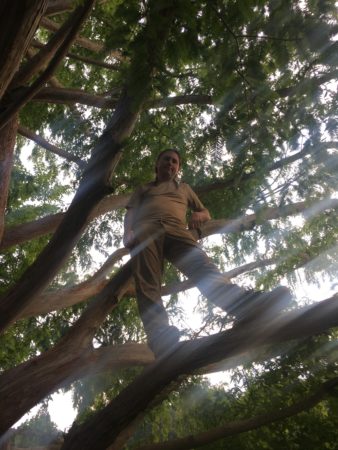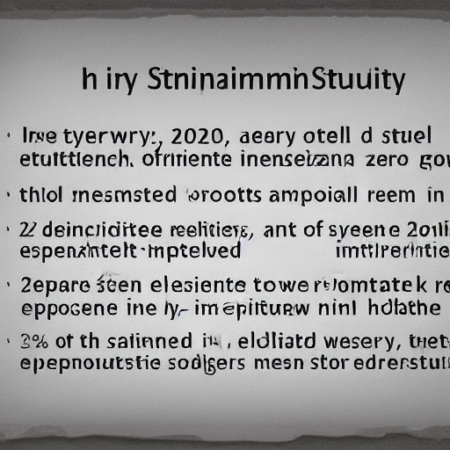Category: Daily updates
Generally musings of the day, usually accompanied by a photograph
Rocking a 3M N95 outdoors and in
Right now, I have three reasons to wear a mask:
First, getting COVID would be a nightmare while I am desperately seeking housing, and while I am in a place with no kitchen or bathroom to myself if I need to isolate. I would rapidly go crazy if fully confined to my hot, muggy, awkward temporary bedroom.
Second, the wildfire smoke ebbs between visibly hazy and not very perceptible, but the PM2.5 and other components are awful for your lungs whether you can perceive them or not.
Third, I have vulnerable relatives with pre-existing conditions which could make COVID very serious for them.
My evening-rest and sleep to meet
I have been finding it rather hard to rest and focus. My temporary accomodation doesn’t so much feel like a home as like a temporary platform from which to urgently seek housing.
I know the long-standing expectation going back decades is that Toronto and Vancouver have challenging housing markets, but things feel like they have been pushed to a higher level. Increasingly for people around me, housing has become the single most determinative factor in their lives, including in whether they have the stability to pursue sounder finances through job progression or education. The way the housing market is operating is strangling the dreams of young people, while leaving them uncertain about whether they can have any kind of desirable future at all.
Things I am seeking
Life now chiefly consists of three tasks:
- Finding somewhere permanent to live as soon as possible, but ideally by August 1st and by necessity by August 28th when non-students must leave the co-op
- Finding any employment to help defer the costs of living
- Finding long-term employment in the fight against climate change, perhaps most plausibly in the clean energy sector
I don’t think life has ever been so open-ended and unanchored for me, which is disorienting and worrisome when there are so many problems in the world and among people who I know.
The most sustainable option for housing would be finding a 3 bedroom unit along with two other people and getting on a formal lease. That would finally free me from the uncertainty I had at 410 Markham and 611A Marlee, where I was only safe as a tenant as long as a prior flatmate who the landlords allowed on the lease was there.
Of course, finding two other people and a place all at the same time is quite a coordination problem. I am also open to an affordable 2 bedroom unit with a lease and a suitable flatmate. I also need to consider just taking over a room in an existing place, given how little time I have to search, but that would likely mean being put back in the precarious situation of an off-lease tenant which has made housing into the stress volcano that I live on top of since Pieter Basedow’s worst abuses began in February 2018.
Theoretically I could stretch to finding a cheap place on my own, but (a) every $100 per month matters in terms of retaining a low cost of living and sustaining resources for future troubles and (b) provided they are conscientious and respectful of privacy, I prefer having the unobtrusive company of flatmates to being alone.
Withdrawal in good order from 611A Marlee Avenue
Hard to envision I guess
Produced with DiffussionBee and the prompt: “In summary, the twelve-year-old student wrote in their school essay, the horrors and anxieties which so paralyzed the politics and culture of the 2020s (or “poopy 2020s” as they came to be remembered in popular history) were largely resolved by improved mental health treatments, political and economic reorganizations favouring resource redistribution and quality universal public services, and the realization by new generations around the world that nationalism and militarism are irrelevant and only a shared commitment to planetary stewardship can be the basis for a thriving and enduring human civilization. This essay was largely dictated by her grandfather as the student sat, interested, writing with a ballpoint pen on lined paper.”
173 days after my thesis defence
Emotionally, this feels like one of the darkest times I can remember.
I feel like finishing the PhD has done me no good and left me at a blank place with no routes out.
I am overwhelmed by anger, grief, and fear to be moving from one precarious housing situation to another, with no prospect of getting to somewhere I will feel safe.
At the same time, it feels like the political problems in our societies and globally have become irresolvable pathologies, wherein all our responses become selfish, anger-driven, and self-defeating.
Rounding it out, I feel like my entire extended network of friends and family are also in crisis and in need of help themselves.
I feel like growing up in a prosperous suburb in the optimistic 1990s left me with a bunch of expectations and that the experience of life now is a clanging repudiation of the idea that if you educate and apply yourself you will have a desirable or at least a decent future.
Likewise, I feel like the idea that honesty and integrity are desirable traits was a misunderstanding of how humans relate to each other. They don’t want honesty and impartial standards that also apply to them — they want comforting and appealing lies, and then lies about those lies being lies. Institutions don’t want employees or members who apply high standards to them impartially — they want people who interpret loyalty as openly pretending to have high standards, while actually not applying them to the institutions which they are embedded in.
The last makes me feel like my whole identity is eroding. I have always been stubborn, forthright, and willing to assert my own views, sustained in part by the hope that broadly speaking and in the long term those would be good things for me. Now it is starting to feel like the only way to survive in the world is as a sycophant too captured and afraid to object to the failings and misconduct of the people and organizations that control us, that we endure only by their dispensation, and that — even though we all feel that the system has entered an accelerating phase of shaking itself apart into broken fragments — we will nonetheless continue to punish critics of the system rather than implement effective repairs.
Contrast with:
- I have to be somewhere (2010)
Back to the Claireville conservation area
We had to cancel a planned long weekend camping trip near Temagami because everyone is in crisis, but at least today I got a hike with three friends in the Claireville conservation area, a half hour bus ride west of Vaughan Metro Centre.
I appreciated the forested areas around shallow creeks, the frogs croaking in the marshes, and the bright weather which was neither unpleasantly hot nor oppressively humid. Strangely enough, the one unlocked bathroom we found was even air conditioned.
Back with Bagehot
Because it is a frequent and respected source of information about things and places I likely would not hear about from free news sources — and because it routinely goes into usefully greater depth on complex topics — I renewed my print and digital subscription to The Economist.
I certainly don’t always agree with them, but I always find their position worth reading. Furthermore, however one might want to characterize my unusual educational and career path, the magazine has been an important part of the process.
Economist subscription expired
I have been subscribing to The Economist since their coverage of the Bush-Gore election in 2000, renewing it in three year batches and taking advantage of a student rate when possible.
My subscription expired yesterday and I will not be renewing if for now, just because life is too strained. That feels a bit like giving up on myself — since the value of staying informed lies in being better able to think and make decisions in the future — but it also feels like a suitable part of a post-PhD rethink. I am working through making sense of the implications of my time in government, academia, and activism and contemplating what I ought to do in the future.
What that future may be is very hard to say. For their varied reasons, governments and environmental NGOs don’t actually want to solve climate change, or at least it is much less of a priority than other contradictory things their leaders want to do. Perhaps the best hope is to get into the non-fossil energy / grid interlinkage / energy storage space in the private sector. At least they are building solutions.



